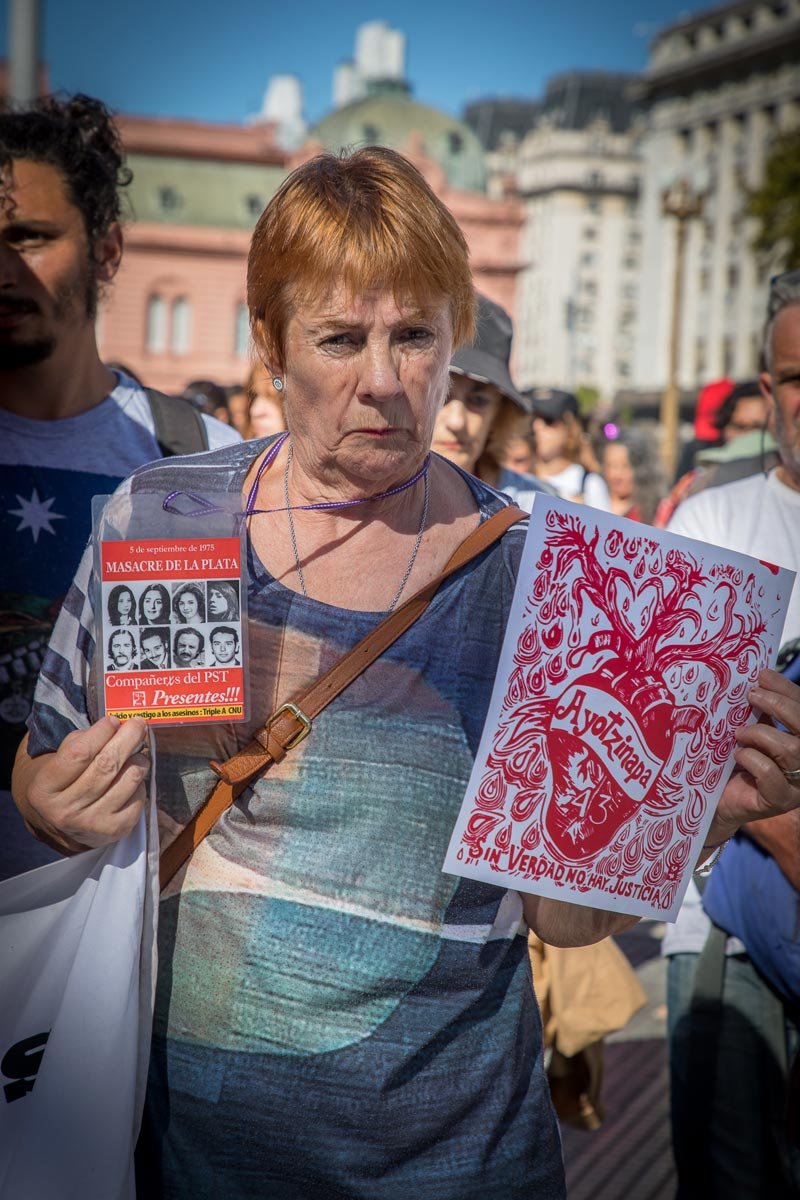From Argentina to Ayotzinapa... Never again!
Elia Espen, whose son was disappeared in 1977, holds a sign for Ayotzinapa in Buenos Aires on March 28, 2024. Photo © Francisco de Parres Gómez.
Photos • Francisco De Parres Gómez • May 1, 2024 • Leer en castellano
The movement for the return of disappeared in Argentina works to build memory through constant action. It is led by the Mothers of the Plaza de Mayo, who first set up a picket in front of the Casa Rosada to demand justice on 30 April 1977. Since then, they have demonstrated every week.
Many of these women are now elders, and over the years they have put their bodies on the line at the forefront of various social movements. On March 28, 2024, amid their differences and their complexities, the two different mother’s groups, the Founding Line and the Association of the Mothers of the Plaza joined together to reiterate that they will not stop until they achieve their goals.
Elia Espen escaped from the dictatorship of Benito Mussolini. Now, at 92 years of age, she continues to demand the return of her son Hugo Miedan, a militant of the Revolutionary Workers' Party, disappeared on 18 February 1977 at the hands of Argentina’s civil-military dictatorship.
With great clarity, Espen sent her warmest greetings to the mothers and fathers of Ayotzinapa who are searching for their 43 disappeared children in Mexico.
More than 30,000 people were disappeared during the dictatorship in Argentina, and at least another 9,175 have been victims of different state crimes under “democratic” governments.
In Mexico and everywhere else, the fight is for memory, truth and justice.







